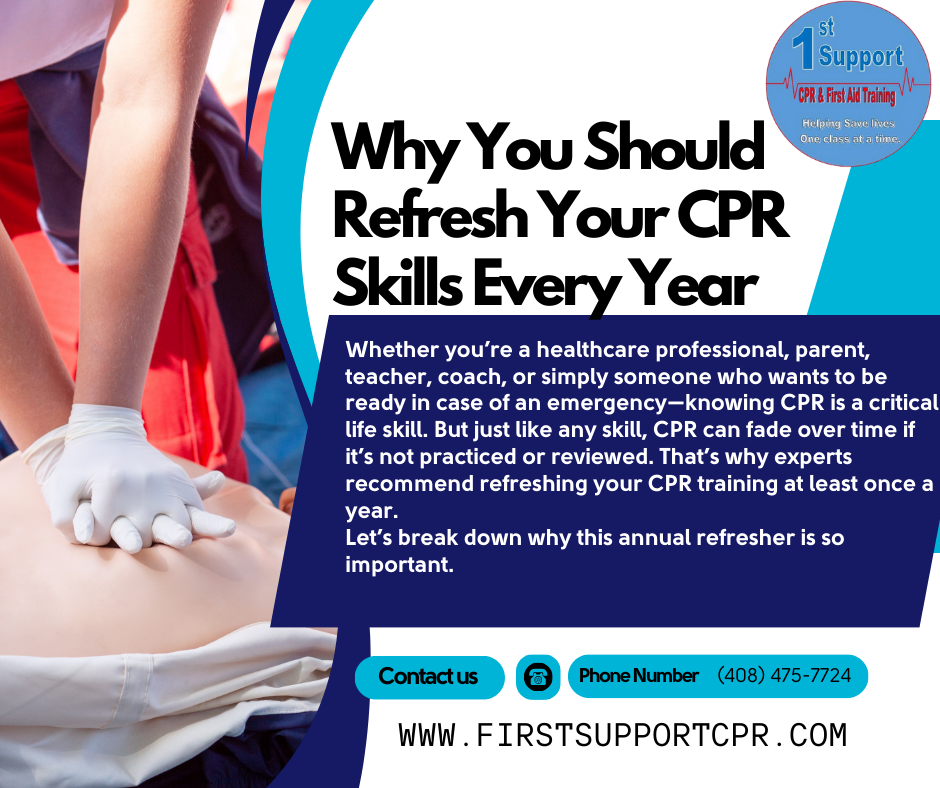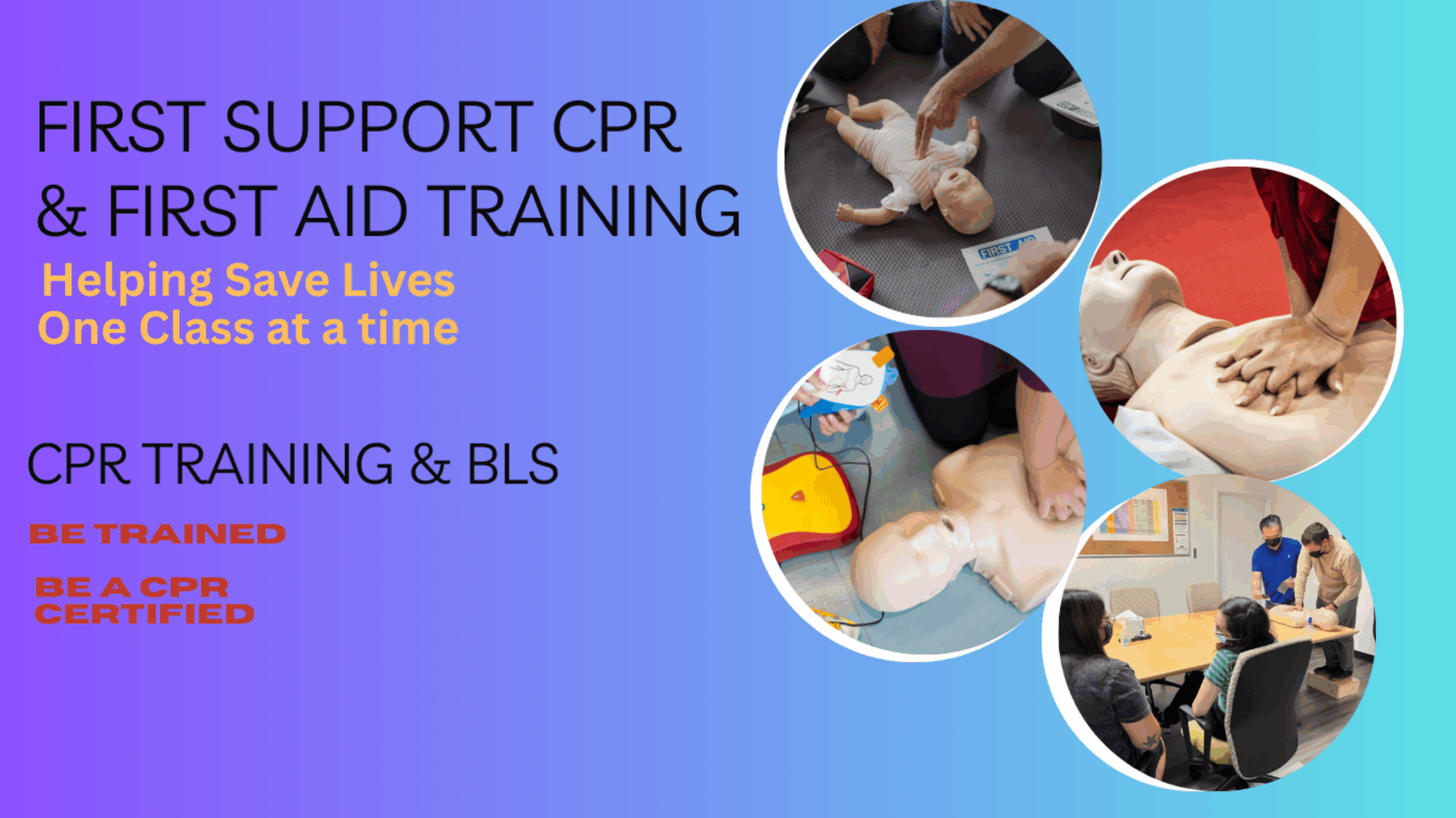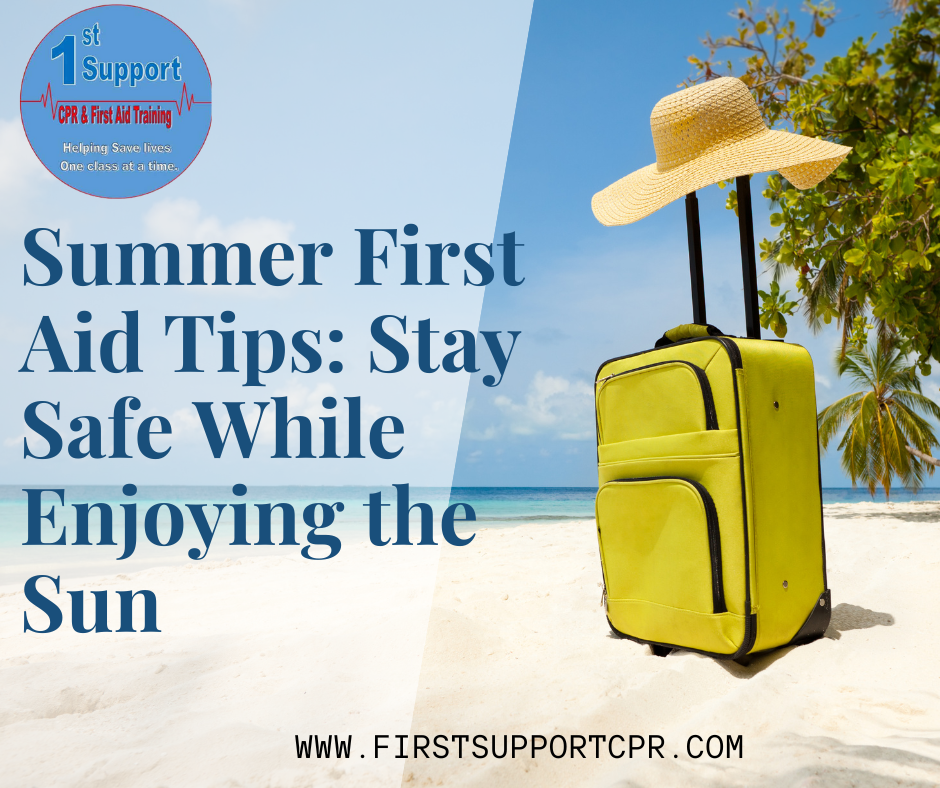
🧠1. Skills Fade Fast
CPR is not something most people use every day. Studies show that within 3 to 6 months, individuals begin to forget key details, like:
Compression depth and rate
Proper hand placement
Steps for using an AED
When to call for help
An annual refresher keeps the techniques sharp and muscle memory intact—so when the moment comes, you’re ready to act with confidence.
📋 2. Guidelines Change Over Time
The American Heart Association (AHA) regularly reviews research and updates CPR guidelines every five years—but even between official updates, training methods evolve. A refresher class ensures you’re learning the latest recommendations, such as:
Hands-only CPR for bystanders
Updated AED usage steps
Adjusted compression-to-breath ratios (if applicable)
Staying up to date could mean the difference between saving a life and missing a critical step.
👨👩👧 3. You’ll Be Ready to Protect the Ones You Love
Emergencies happen without warning. Cardiac arrest, choking, drowning, or trauma can strike anyone—at home, work, or in public. When you keep your CPR skills fresh, you:
React faster under pressure
Stay calm in chaos
Help save a life before EMS arrives
That kind of preparation is especially vital for parents, grandparents, caregivers, and teachers.
⏰ 4. It Only Takes a Few Hours
The good news? Refreshing your CPR training doesn’t take long. Many courses, especially for non-healthcare providers, can be completed in just a couple of hours—some even online or in blended formats.
Think of it as a small investment of time for the potential to make a life-saving impact.
📍 CPR Classes in San Jose, CA
If you’re located in or around San Jose, we’d love to welcome you to one of our CPR classes. We offer:
Hands-on training
Friendly, certified instructors
Small group sessions
Classes for parents, professionals, and community members
Whether it’s your first time or your annual refresher, you’ll leave empowered and confident.
❤️ Be a Lifesaver—Stay Sharp, Stay Ready
Remember: Learning CPR once is a great start. But refreshing your CPR skills every year ensures you’re always prepared to help when it matters most.
Don’t wait until an emergency to wish you knew what to do—take the step now and keep your skills current.
📞 Call us today at (408) 475-7724
📍 Serving families and professionals in San Jose and surrounding areas

